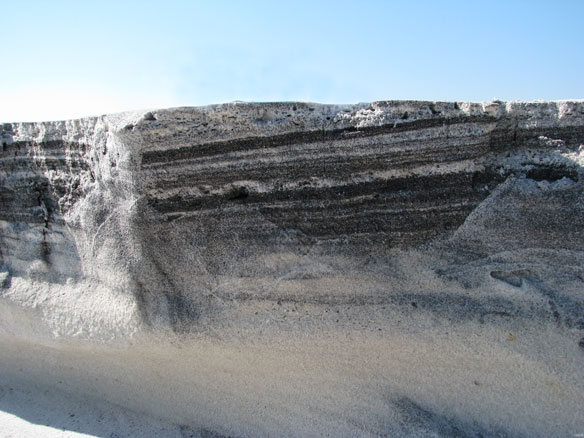
Oiled sediment. This photo shows the swash zone at USGS sampling location MS-39 on East Ship Island, MS. Waves have cut a steep section into the sand, revealing alternating layers of clean and sticky organic-rich sand that are visible after low tide. (The swash zone is the zone that is alternately covered and exposed by waves.) Captions and Photo source: Shane Stocks / USGS
Excerpts;
Missing oil from the Deepwater Horizon spill may have ended up at the bottom of the Gulf of Mexico.
The Deepwater Horizon spill in 2010 spewed more than 600 million litres of oil into the Gulf of Mexico. While microbes processed the vast majority within months, US government assessments failed to account for the fate of about one-quarter of the spilled oil.
Some scientists attending the Gulf of Mexico Oil Spill and Ecosystem Science Conference in New Orleans, Louisiana this week are now saying that as much as one-third of the oil may have been mixed with deep ocean sediments through a phenomenon dubbed the dirthy bathtub, and dragged to the bottom by another process called the dirty blizzard…









